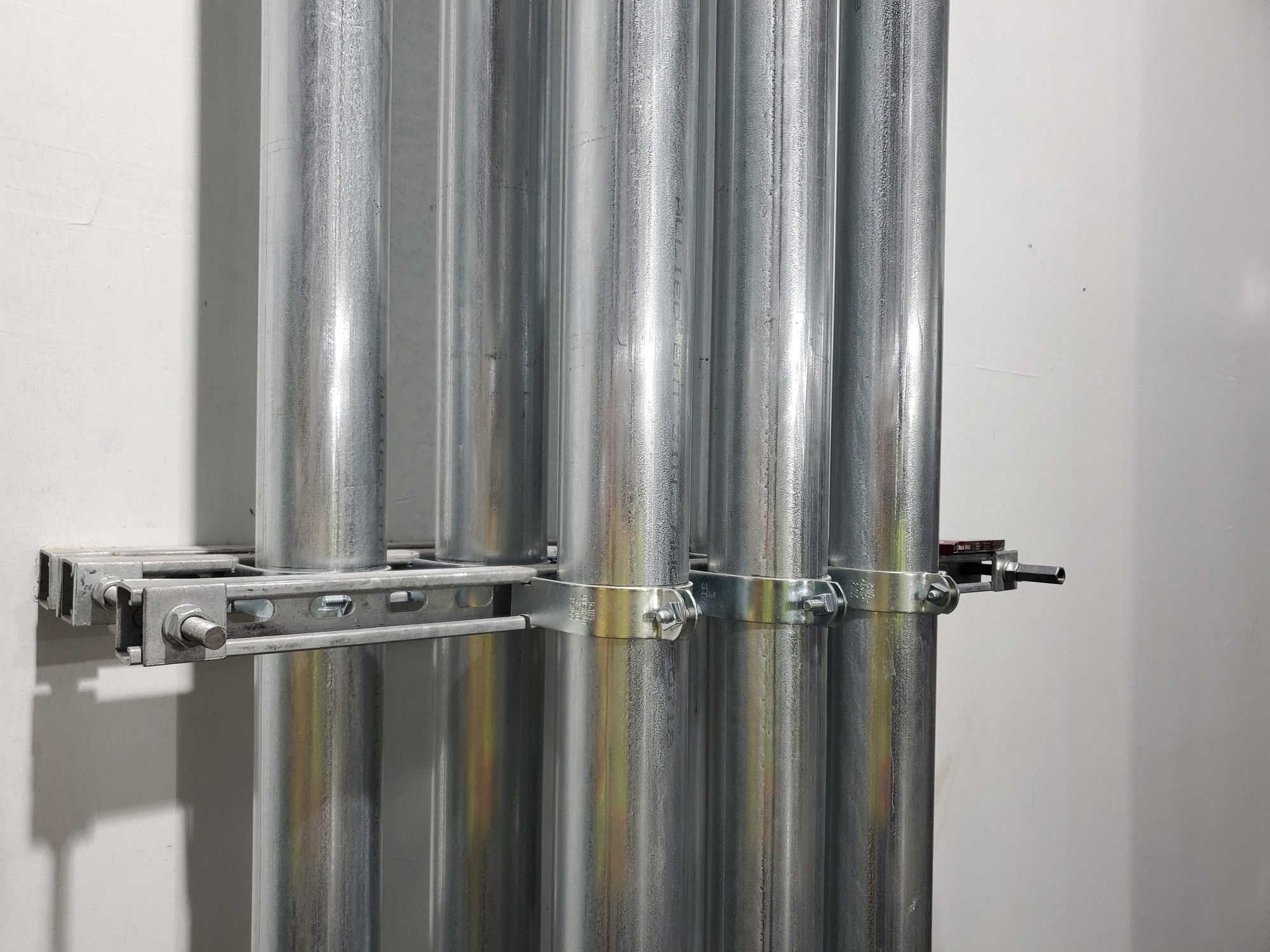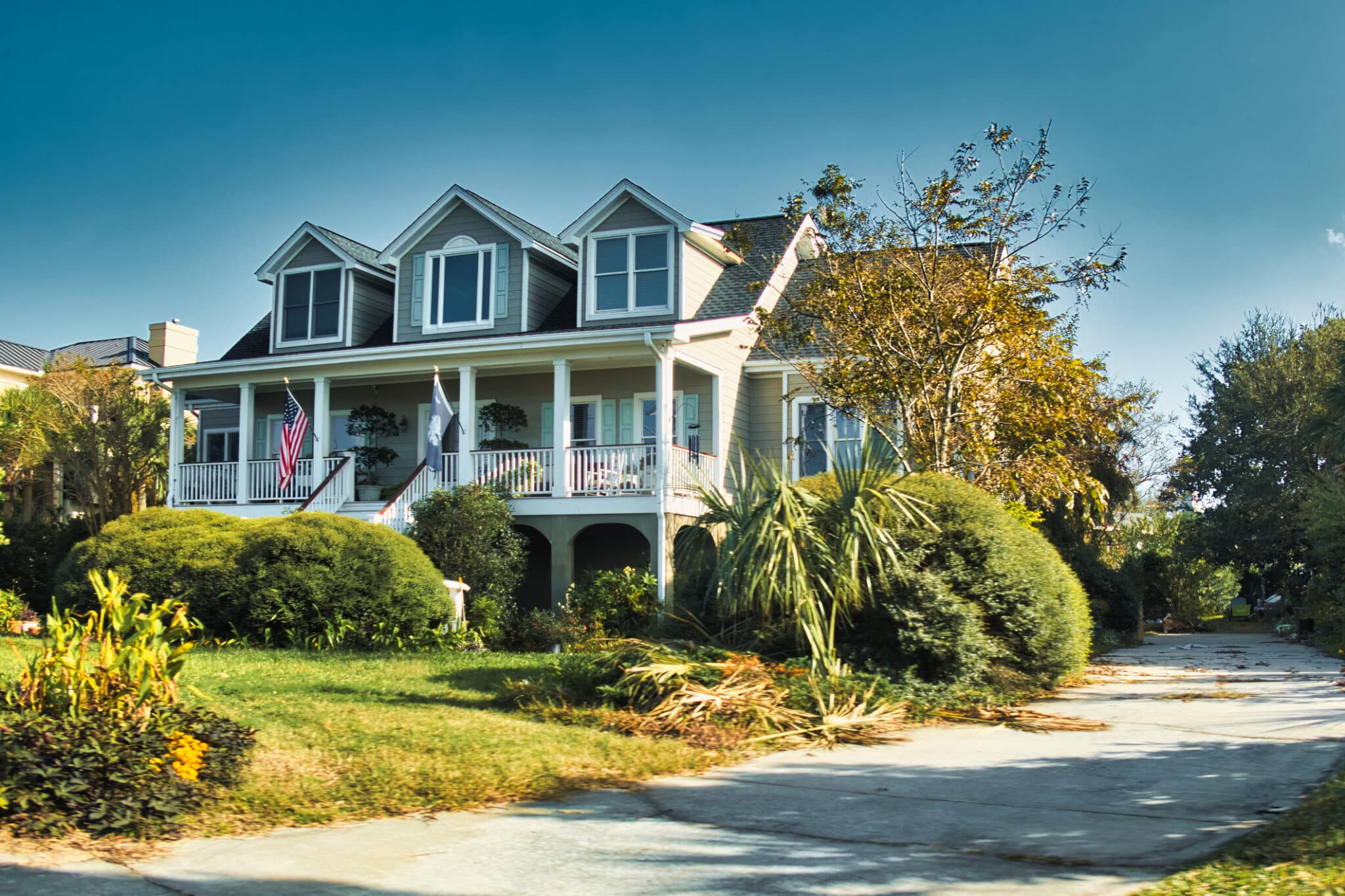When it comes to ensuring the safety and efficiency of your home’s electrical system, choosing the right electrical conduits is crucial. These protective coverings not only safeguard your wiring from damage but also ensure that your home complies with local codes and regulations. For homeowners in Charleston, SC, understanding the different types of electrical conduits available is the first step toward making an informed decision. It’s all about finding a balance between functionality, safety, and aesthetic appeal.
In the diverse landscape of Charleston and the surrounding areas like Mt. Pleasant, SC, the choice of electrical conduits can vary significantly. Factors such as weather conditions, the architectural style of your home, and specific local requirements play a vital role in this decision-making process. Whether you’re renovating an old Charlestonian home or building a new one in Mt. Pleasant, selecting the right type of conduit will contribute to the longevity and safety of your electrical installations.
Electrical conduits come in a variety of materials and sizes, each suited for different applications and environments. From rigid metal conduits that offer the highest protection to flexible plastic ones that are easier to install in difficult or tight spaces, the options are extensive. Knowing the advantages and limitations of each type can help you narrow down your choices, ensuring that your home’s electrical system is both efficient and up to code.
Moreover, consulting with a professional electrician who understands the specific needs of homes in Charleston, SC, can provide valuable insights. They can offer tailored advice on the best types of electrical conduits for your home, taking into account factors such as climate, the structure of your home, and local electrical codes. This expert guidance can make the selection process smoother, ensuring that your home is equipped with the most suitable electrical conduits for safety, efficiency, and peace of mind.
Understanding the Basics of Electrical Conduits
Understanding the basics of electrical conduits is essential for homeowners in Charleston, SC, aiming to enhance their home’s electrical safety and efficiency. Electrical conduits, essentially tubes that protect and route electrical wiring throughout a building, come in various materials and types. Each type serves a unique purpose and offers different benefits, from increased durability to flexibility. Knowing these basics helps in making an informed decision that aligns with your home’s specific needs.
Metal conduits, for instance, are renowned for their strength and protection against physical damage. They are an excellent choice for areas exposed to severe weather conditions, making them suitable for many homes in Charleston. On the other hand, non-metallic conduits, made from materials like PVC, offer the advantage of corrosion resistance and ease of installation. These are particularly useful in damp areas or where corrosion is a concern, such as near the coast in Mt. Pleasant, SC.
For areas that require more flexibility, such as tight corners or spaces where rigid conduits cannot be easily installed, flexible conduits come into play. These conduits can bend and adapt to various shapes, allowing for a more versatile installation process. This flexibility does not compromise the protection they offer to the wiring, ensuring that safety is maintained throughout the home.
Lastly, it’s important to consider the local codes and regulations governing electrical installations in your area. Each type of conduit has its specific applications and limitations, which are often outlined in local building codes. Consulting with a professional electrician who is familiar with Charleston’s regulations can provide clarity. They can guide you towards the electrical conduits that best meet your home’s requirements, ensuring compliance with local standards and enhancing the overall safety and efficiency of your electrical system.

Types of Electrical Conduits for Residential Use
When considering electrical conduits for residential use, it’s essential to explore the most common types suited for homes, especially in areas like Charleston, SC. Rigid Metal Conduit (RMC) stands out for its durability and robust protection against physical impacts. This type is ideal for exterior applications where the conduit may be exposed to harsh weather conditions. Homeowners in Charleston can benefit from RMC’s strength, ensuring their electrical system remains protected over time.
Another popular choice is Electrical Metallic Tubing (EMT), known for its lightweight and easy installation properties. EMT is a practical option for indoor use, providing adequate protection while being easier to handle and install than RMC. Its flexibility makes it a go-to choice for areas within the home that require a secure pathway for electrical wiring without the need for heavy-duty protection. This makes EMT particularly appealing for projects in Mt. Pleasant, SC, where homeowners might prefer a less intrusive installation process.
For those dealing with damp environments or areas prone to corrosion, Polyvinyl Chloride (PVC) conduits offer an excellent solution. PVC is resistant to water and most corrosive substances, making it suitable for underground installations or in parts of the home exposed to moisture. Its non-conductive property adds an extra layer of safety by reducing the risk of electrical shocks, a crucial consideration for any residential electrical system.
Lastly, Flexible Metal Conduit (FMC) provides versatility for areas with obstacles or where rigid conduits cannot be easily installed. FMC can bend and flex, accommodating tight spaces and making installation simpler in complex architectural layouts. This type of conduit ensures that even the most challenging spaces in a home can be safely and efficiently wired, maintaining both the aesthetic appeal and the integrity of the electrical system.
The Importance of Choosing the Right Electrical Conduits
Choosing the right electrical conduits is more than just a matter of compliance, it’s about ensuring the safety and efficiency of your home’s electrical system. In Charleston, SC, where the climate and local architecture influence electrical installations, the selection process becomes particularly crucial. Homeowners must weigh the benefits of each conduit type against their specific needs, considering factors like weather resistance and ease of installation. This thoughtful approach ensures that the electrical system is not only up to code but also tailored to the unique aspects of their home.
Consulting with a professional electrician is invaluable in this decision-making process. They bring a depth of knowledge about which types of electrical conduits best suit the varying conditions in Charleston and nearby areas like Mt. Pleasant, SC. Their expertise helps homeowners navigate the complexities of local building codes, ensuring that the chosen conduits meet all necessary regulations and standards. This professional guidance is essential for making informed choices that enhance the home’s electrical safety and functionality.
Moreover, the right electrical conduits contribute to the long-term durability and reliability of your home’s electrical system. By selecting conduits that offer the best protection and flexibility for your home’s specific conditions, you can avoid common electrical issues and extend the lifespan of your wiring. This proactive approach not only safeguards your home but also contributes to its overall value, making it a wise investment in your property’s future.
Finally, understanding the role of electrical conduits in your home’s electrical system empowers you to make decisions that prioritize safety, efficiency, and compliance. Whether you’re renovating an older property in Charleston or constructing a new home in Mt. Pleasant, the importance of choosing the right electrical conduits cannot be overstated. It’s a critical step that ensures your home is safe, compliant, and well-equipped to meet your electrical needs for years to come.
Electrical Conduits: Metal vs. Non-Metal Options
When choosing electrical conduits for your home, it’s essential to compare metal and non-metal options. Metal conduits, like those made from steel or aluminum, offer superior protection against physical damage. They are particularly useful in areas around Charleston, SC, where severe weather can pose a threat to electrical systems. Their durability ensures that your home’s wiring is well-protected against external impacts.
On the other hand, non-metal conduits, such as those made from PVC, provide excellent resistance to moisture and corrosion. This makes them a great choice for homes in Mt. Pleasant, SC, where humidity and proximity to the sea can accelerate corrosion in metal conduits. PVC conduits are also lighter and easier to work with, which can simplify the installation process. Their flexibility and resistance to various environmental factors make them a practical option for many homeowners.
Deciding between metal and non-metal conduits involves considering the specific needs of your home’s electrical system. Metal conduits are unmatched in protecting against physical damage, making them ideal for exposed or vulnerable areas. However, for installations requiring flexibility or resistance to corrosion, non-metal conduits might be the better choice. Each type has its unique advantages, ensuring that there’s a suitable option for every situation.
Ultimately, consulting with a professional electrician can help you make the best choice for your home. They can assess the specific conditions in your area, whether it’s Charleston or Mt. Pleasant, SC, and recommend the most appropriate type of conduit. This expert advice ensures that your home’s electrical system is not only safe and compliant but also tailored to withstand local environmental challenges.
Factors to Consider When Selecting Electrical Conduits
When selecting electrical conduits for your home, it’s crucial to consider the local climate, especially in areas like Charleston, SC. The humid and sometimes stormy weather can greatly influence the type of conduit best suited for your property. Metal conduits might be preferable for their durability in storm-prone areas, while non-metal options like PVC can offer better resistance to moisture and corrosion, which is particularly relevant in coastal regions.
Another important factor is the specific electrical requirements of your home. Homes in Mt. Pleasant, SC, for example, might have unique architectural features or electrical needs that call for flexible conduits. These allow for easier installation around tight corners or in spaces where rigid conduits would be impractical. Consulting with a professional can help identify which conduits will best meet these requirements while ensuring safety and compliance.
The ease of installation is also a key consideration. Non-metal conduits, being lighter and more adaptable, can often be installed more quickly and with less labor than their metal counterparts. This can be a significant advantage for homeowners looking to minimize disruption and complete projects efficiently. However, the ultimate choice should balance ease of installation with long-term durability and protection.
Finally, it’s essential to think about future maintenance and upgrades to your electrical system. Choosing conduits that not only meet current needs but also accommodate future changes can save time and money down the line. Whether you’re in Charleston or Mt. Pleasant, SC, opting for conduits that offer a blend of durability, flexibility, and ease of maintenance will ensure your home’s electrical system remains safe and functional for years to come.

Installation Tips for Electrical Conduits in Charleston Homes
Installing electrical conduits in your Charleston home requires careful planning and precision to ensure safety and efficiency. Before starting, it’s crucial to measure the path where the conduit will run to avoid unnecessary cuts and waste. This step helps in determining the exact length of conduit needed, making the installation process smoother and more cost-effective. Additionally, marking the route on walls or floors can guide the installation, ensuring that the conduits are laid out in the most efficient manner possible.
When working with electrical conduits, especially in areas like Mt. Pleasant, SC, it’s important to consider the type of conduit fittings and connectors. These components should be compatible with the type of conduit being used, whether it’s metal or non-metal. Using the right fittings not only secures the conduit properly but also maintains the integrity of the electrical system. It prevents potential damage that could arise from using mismatched materials, which is essential for long-term durability.
Bending conduits may be necessary to navigate around obstacles or corners within your home. For this task, using a conduit bender tool can ensure accurate and smooth bends without damaging the conduit. This is especially useful for installations that require precise angles and curves, allowing for a neat and organized electrical system. Taking the time to bend conduits properly can greatly enhance the aesthetic appeal of the installation, keeping it unobtrusive and in harmony with your home’s design.
Finally, securing the conduits firmly to the structure of your home is vital for both safety and compliance with local codes in Charleston, SC. Use appropriate fasteners and supports spaced at regular intervals to prevent sagging or displacement over time. This not only helps in maintaining a tidy installation but also ensures that the electrical conduits are protected from physical damage. Regular checks and maintenance can further extend the lifespan of your home’s electrical system, keeping it safe and functional for years to come.
Local Regulations and Standards for Electrical Conduits
Understanding local regulations and standards for electrical conduits is essential for homeowners in Charleston, SC. These guidelines ensure that electrical installations meet safety and quality benchmarks, protecting residents from potential hazards. By familiarizing themselves with these standards, homeowners can make informed decisions about which electrical conduits are suitable for their homes. It’s also a step towards ensuring that any electrical work is compliant, avoiding costly penalties and rework.
In Mt. Pleasant, SC, for example, the local climate and environmental conditions may influence specific requirements for electrical conduits. These local nuances highlight the importance of selecting conduits that can withstand humidity and salt air without corroding. Homeowners benefit from consulting with local experts who are well-versed in these requirements. This ensures the chosen conduits not only meet local standards but also provide long-lasting protection for electrical wiring.
Another key consideration is the impact of local building codes on the installation process. These codes often specify the types of conduits that can be used in different parts of a home, such as underground or within walls. Adhering to these codes is crucial for passing inspections and maintaining the safety of the electrical system. Homeowners should always check the latest regulations or work with a qualified electrician to ensure compliance.
Finally, staying updated on changes to local regulations and standards is important for ongoing compliance and safety. Charleston, SC, and surrounding areas may update their requirements to reflect new safety standards or technological advancements. Regularly consulting with electrical professionals or local building authorities can help homeowners keep their installations up to date. This proactive approach not only ensures safety but also enhances the efficiency and reliability of the home’s electrical system.
Maintenance and Safety Tips for Home Electrical Conduits
Maintaining your home’s electrical conduits is key to ensuring safety and efficiency in Charleston, SC. Regular inspections can help identify potential issues before they escalate into serious problems. Checking for signs of wear, damage, or corrosion in your conduits can prevent electrical hazards. This proactive approach keeps your electrical system running smoothly and safely.
In Mt. Pleasant, SC, it’s important to keep electrical conduits clear of obstructions and securely attached. Loose or dangling conduits can pose risks, especially during severe weather conditions. Securing them properly and ensuring they are free from blockages can enhance their durability. This simple step can significantly reduce the risk of electrical failures.
Cleaning your electrical conduits is also essential for maintaining their integrity and functionality. Dust, dirt, and moisture can accumulate over time, leading to corrosion, especially in non-metal conduits. A regular cleaning schedule helps preserve the conduits’ condition, ensuring they continue to protect your home’s electrical wiring effectively.
Finally, consulting with a professional electrician for periodic reviews of your electrical conduits can offer peace of mind. They can provide expert advice on whether any replacements or upgrades are necessary. This expert insight ensures your electrical conduits meet the latest safety standards and are well-suited to your home’s specific needs.
Frequently Asked Questions
What are the types of electrical conduits?
Electrical conduits come in various types, each suited for different uses in your home. Metal and PVC conduits are popular choices, offering durability and ease of installation, respectively. For areas needing extra protection, like outdoor or damp locations, rigid conduits provide the best safeguard. Flexible conduits, on the other hand, are ideal for tight spaces where bending is necessary.
How to determine conduit size needed?
To determine the right size for electrical conduits, start by considering the number and type of wires you plan to run. Larger wires or more wires require bigger conduits to avoid overcrowding and overheating. A professional electrician can help calculate the exact size needed, ensuring safety and compliance with local codes. This step is crucial for efficient and safe electrical system installation in your home.
What are the benefits of flexible electrical conduits?
Flexible electrical conduits offer great versatility for home wiring projects. They easily bend around corners, making installation simpler in tight or complex spaces. This flexibility reduces the need for multiple fittings, streamlining the setup process. Moreover, they provide added protection for wires against moisture and impact, enhancing safety and durability.
When should you use metal vs. plastic conduits?
Choosing between metal and plastic electrical conduits depends on the project’s specific needs and location. Metal conduits offer superior protection and are ideal for areas exposed to high temperatures or where additional durability is required. On the other hand, plastic conduits are more suited for damp environments, as they are resistant to corrosion and easier to install. Always consider the environmental conditions and safety requirements of your Charleston home before deciding.
How do electrical conduits improve safety?
Electrical conduits protect wires from damage, significantly enhancing home safety. They prevent electrical fires by shielding wires from external threats like moisture and pests. These conduits also reduce the risk of electric shock to residents by enclosing live wires. By using them, homeowners ensure a safer environment, complying with local safety codes.






